如恩设计研究室
阳澄湖别墅 ©Pedro Pegenaute
设计单位 如恩设计研究室
项目地点 中国苏州
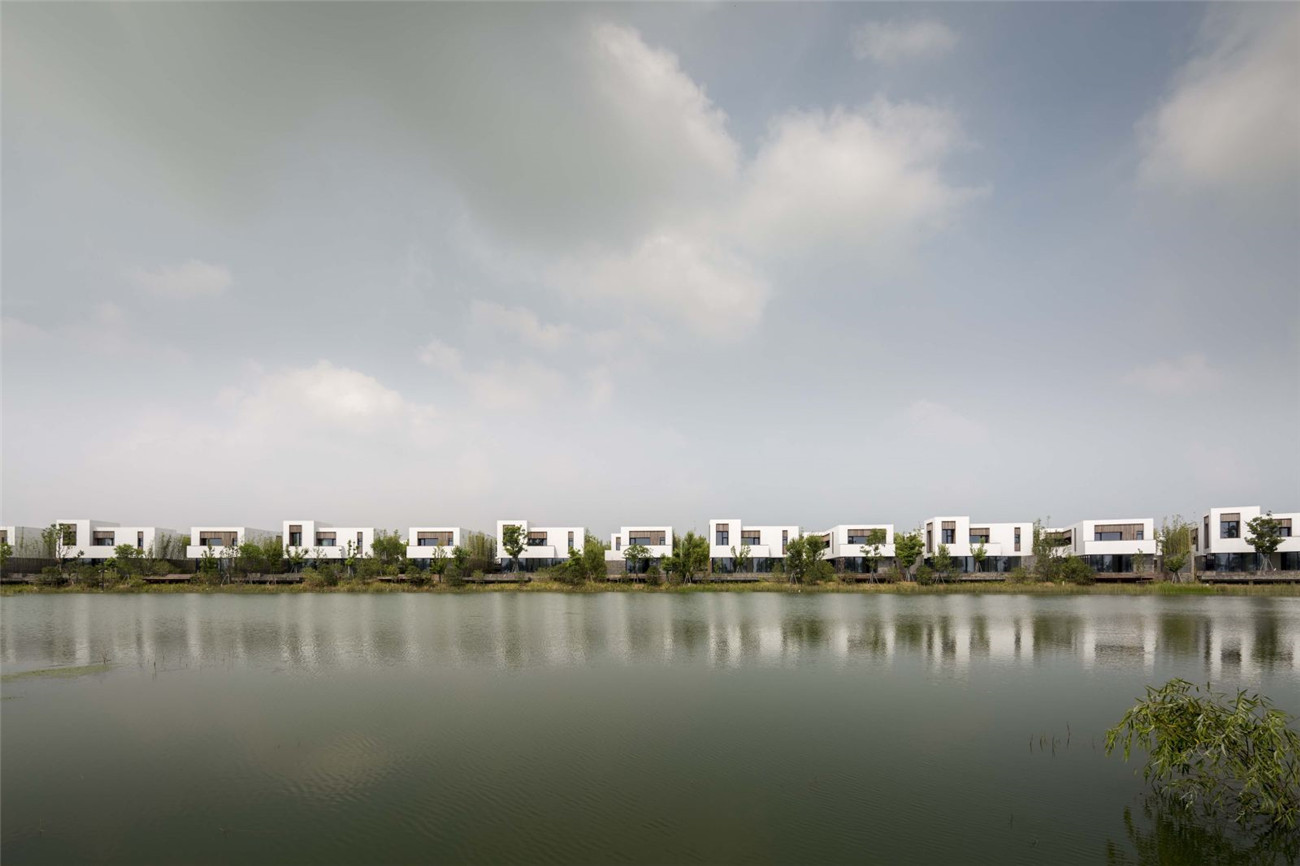
中国城市的活力体现于元素的多样性,这些元素反映了某些中国观念,即共同的生活空间,或者说是家族聚集在一起居住而形成了村庄。项目现状的总体规划承袭了传统的郊区结构,重新进行总体规划的挑战在于如何创造一个适应于现代中式生活的新范例。首先,要打破典型的独立家庭的固态和单独性,从而创造更多的户型,这样一来,景观、动线以及公共空间就会融合在一起,唤起中式生活空间的生命力。
The vibrancy of China’s urban typologies lies in the variability of its elements, which reflects certain Chinese notions of communal living, or the village as extended family. Inheriting a master plan modeled after generic formations of suburbia, the challenge is to create a new paradigm of living that suits the modern Chinese lifestyle. The first move is to break down the solidity and singularity of the archetypical single family home into smaller units of living, which, when interwoven with landscape, circulation, and communal spaces, can begin to recall the vitality of Chinese living.
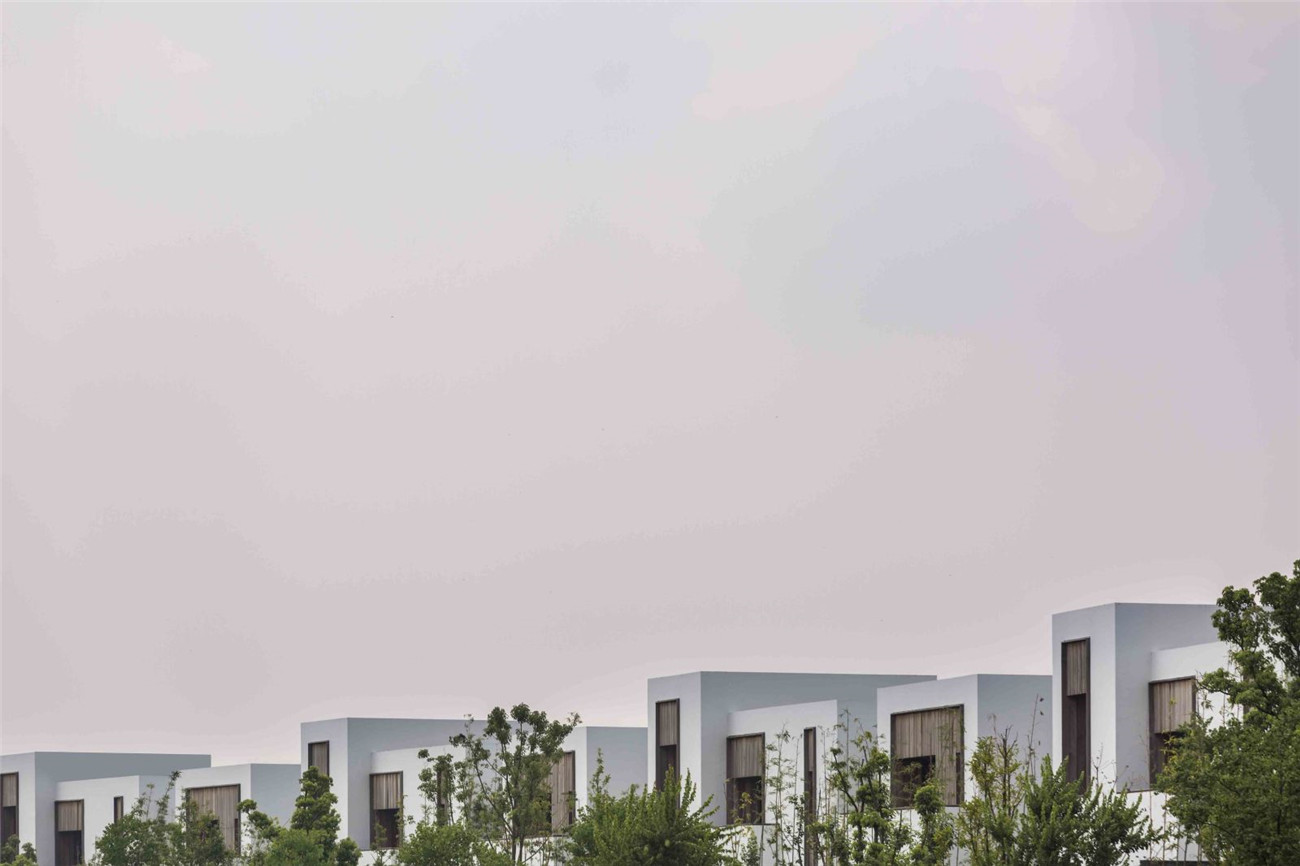
在一个新概念所定义的郊区生活空间中,景观不再被单独归入室外范围,或是仅仅被定义成草地和修剪过的篱笆。中式园林的经典组成元素——小径,门槛,中心景观以及无边际设计——能够使一连串不同的事物交织在一起,包括室内与室外,软景观与硬景观,自然与人造等,从而创造出不同的感官体验。
In a newly defined notion of suburban living, landscape can no longer be relegated solely to the realm of the outside or be defined merely as grassy lawns and manicured hedges. The organizing elements of classic Chinese gardens—path, threshold, center, and infinity—generate a sequential journey that inter-weaves interior with exterior, hardscape and softscape, natural and artificial, structured and organic.
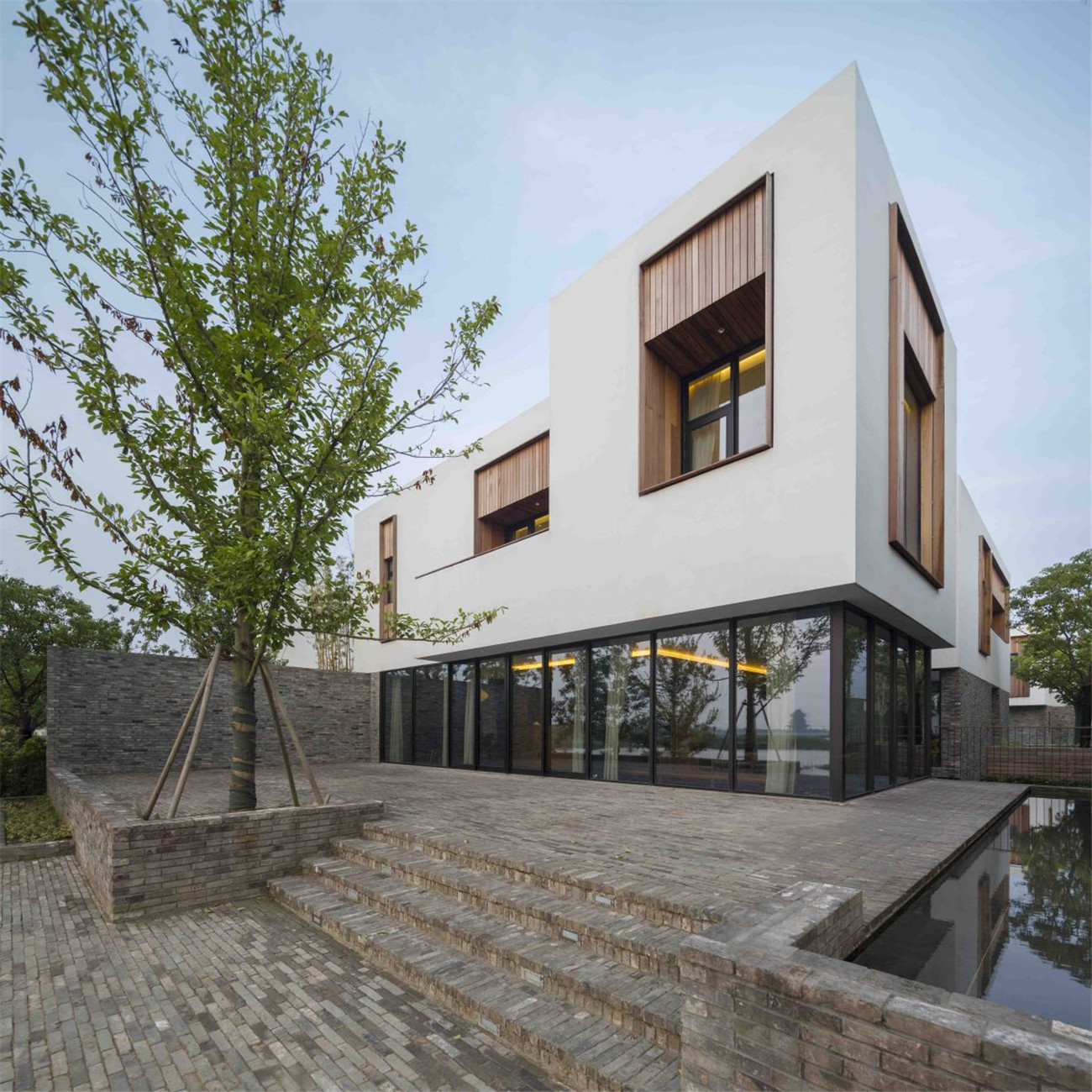
我们所居住的环境映射出我们与家庭、邻里、自然以及我们自己的复杂关系,反映了我们看待事物或被别人看待,以及处理文化异同的方式。我们的居住空间应该在维持稳定不变状态的同时又允许不断变化的可能,这样的居住空间,才能获得“家”的舒适。
Our lived environment must reflect the complex nature of our relationships--with our family, with our neighbors, with nature, and with ourselves--how we see or hope to be seen, how we come together with our cultural similarities and differences. The space we inhabit should allow for the dynamism of these ever-changing relationships while maintaining a stable underlay that is consistent, from which one can derive the comfort of “home”.
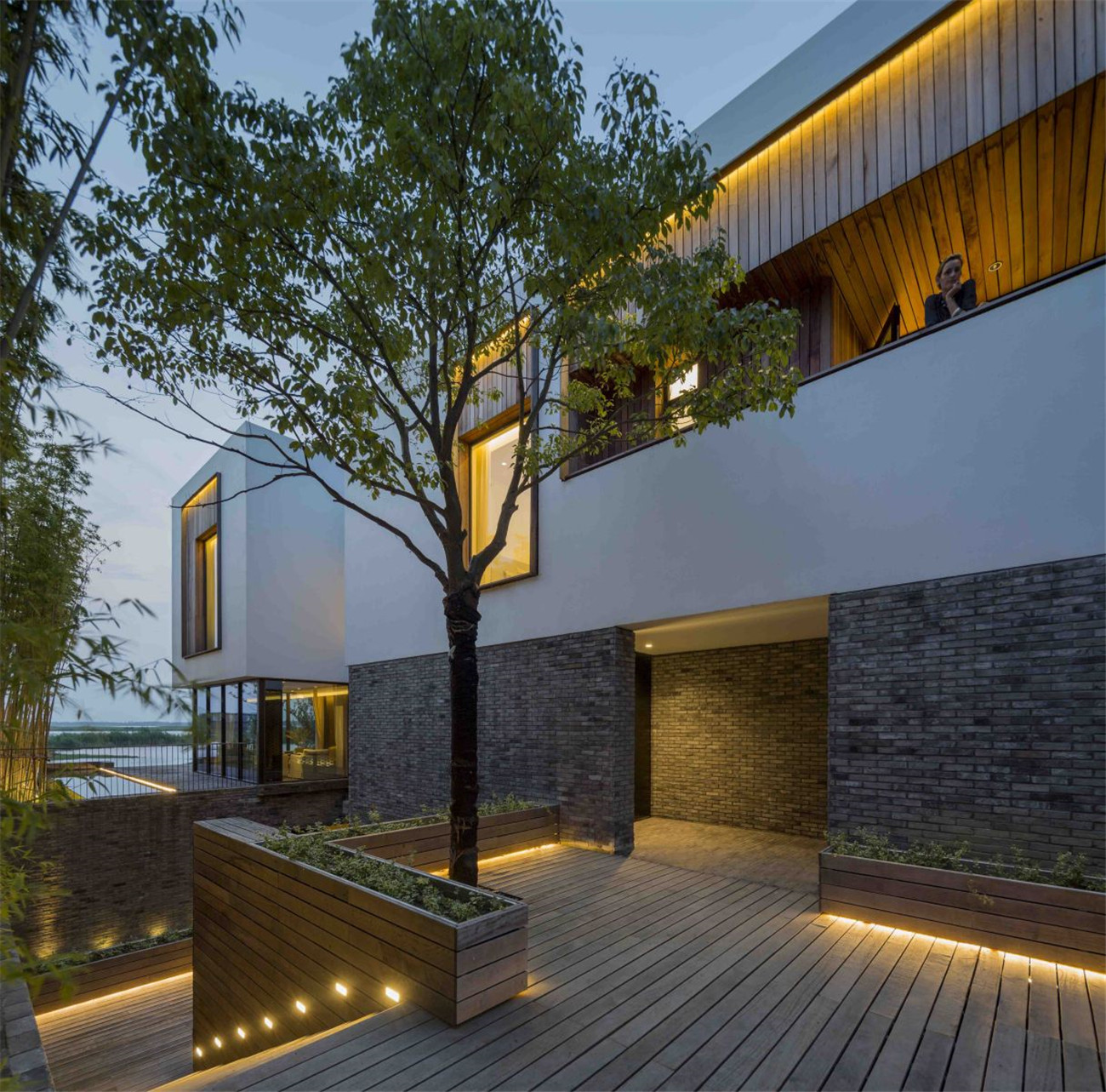
别墅的室内设计与建筑相联系,由两个主要元素组成:底部起伏的砖墙和“漂浮”其上的白盒子。表面材质的明显分界也体现了内部空间在公共和私人区域的鲜明界限。
The interior design of the villas takes its cues from the architecture, which consists of two primary elements: the undulating brick walls at the base and the floating white boxes above. The clear delineation of materiality on the surface is also a signifier for the programmatic separation of public and private realms inside.

传统的中式灰色砖墙覆盖了地下一层与第一层,包括客厅、餐厅、健身房、Spa、茶室以及多媒体室等公共功能空间。这些空间选用了染黑处理的木地板、暖色的天然橡木墙面、混凝土饰面、素净的面料和皮革装饰,再以青铜和黑色金属加以勾勒,与粗犷的砖石基底形成有趣的对比。家具中的亮色与镜面元素也为这个硬线条的粗犷空间增添了一抹柔亮。
The traditional Chinese gray brick walls envelop the basement and first floor, to contain communal functions such as living, dining, gym and spa, tea room, and media room. The material palette of these spaces builds upon the basis of the rustic brick, complimenting it with rich blackened wood floors, natural warm oak walls, concrete render, neutral fabrics and leathers, plus accents of bronze and black steel. Hints of bright color and mirrored surfaces in the furniture pieces bring a touch of lightness to this robust and masculine space.
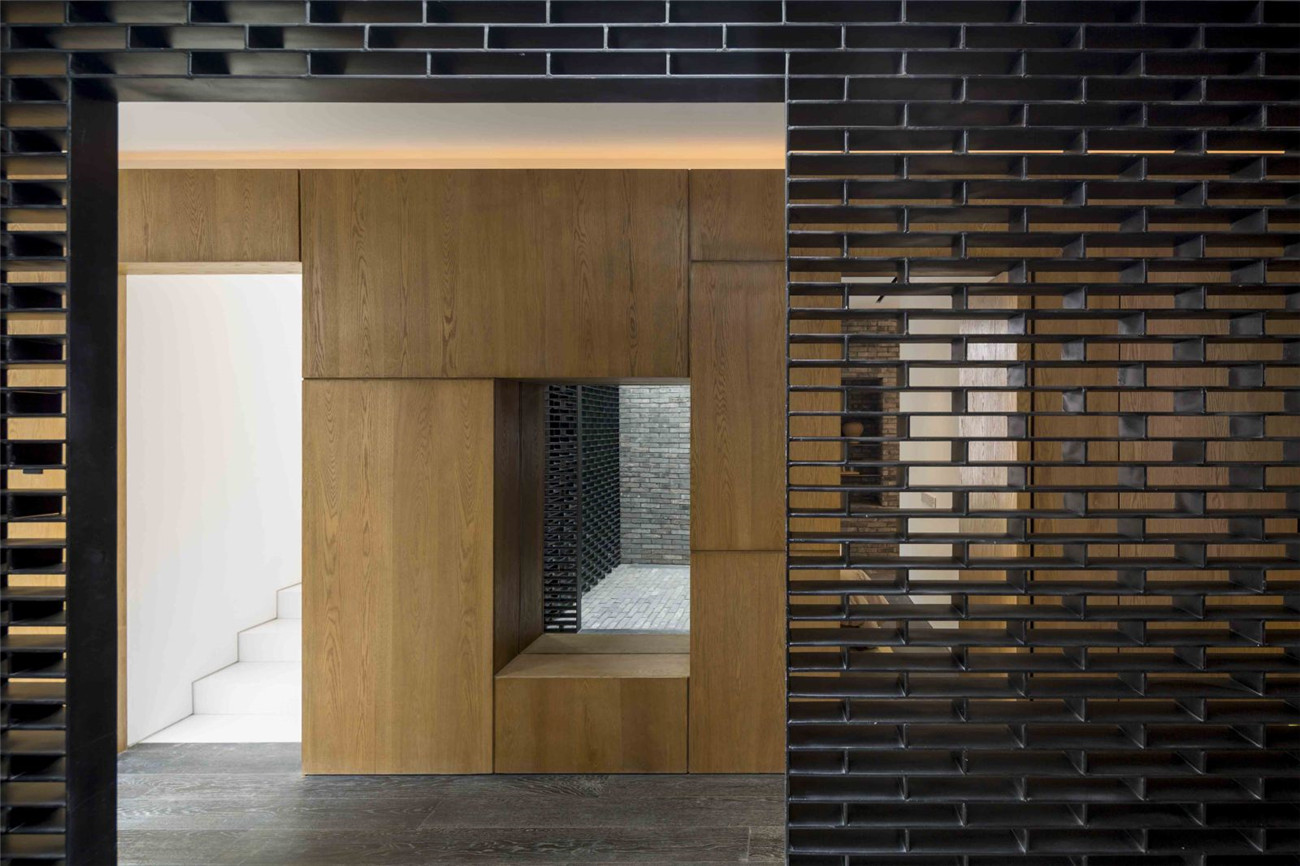
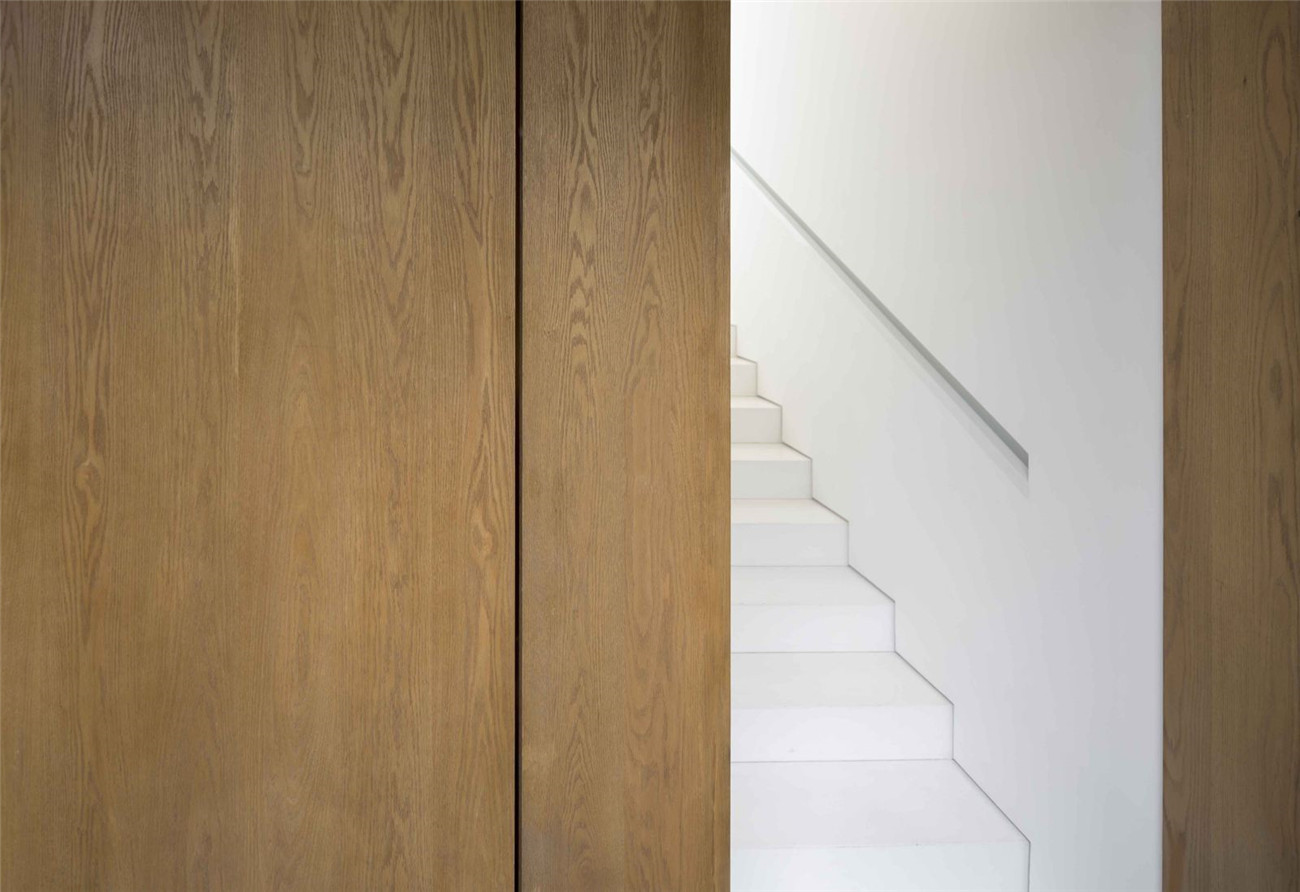
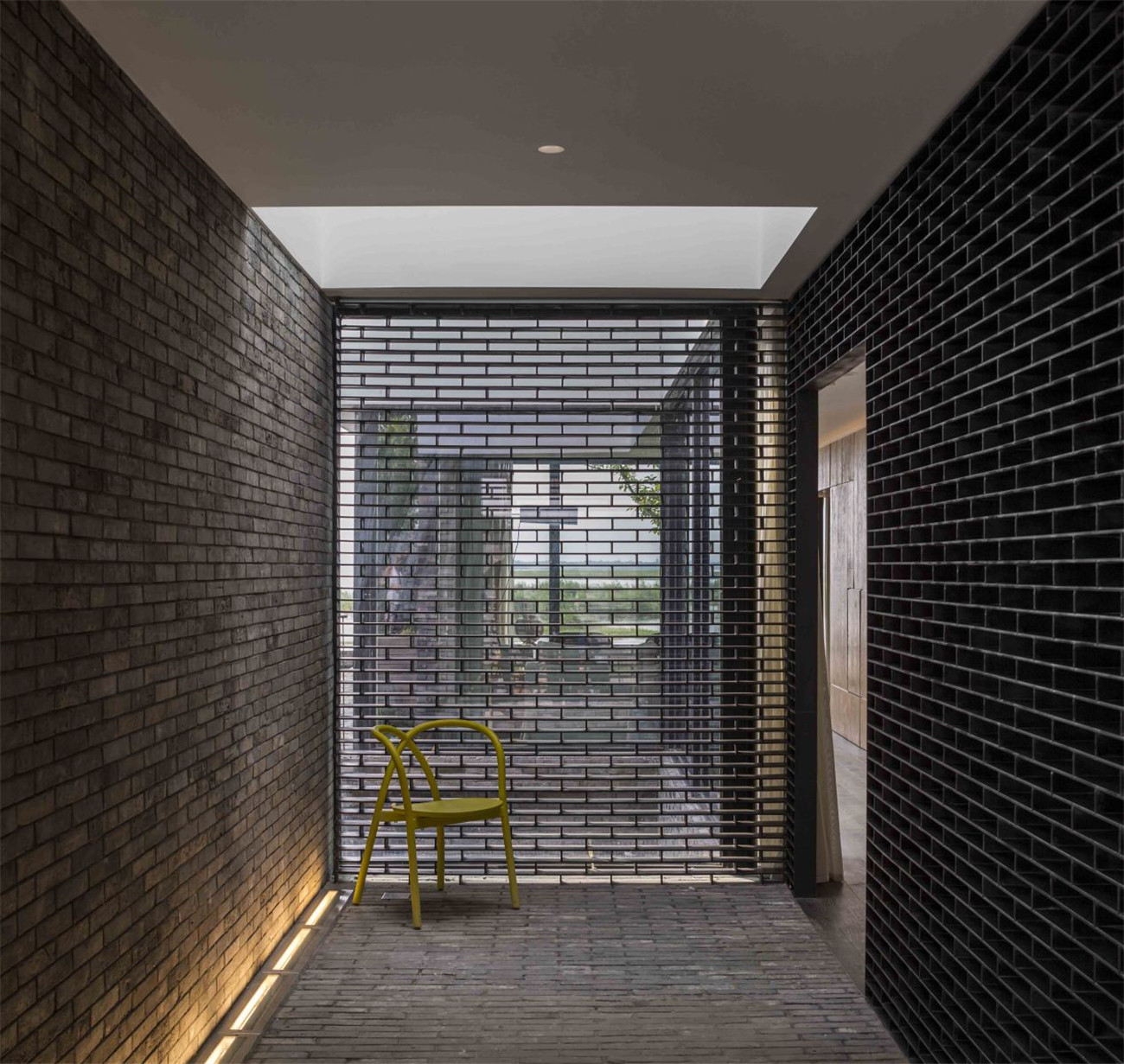
与较低的楼层不同,别墅的上层空间包含了家庭室、主卧室、儿童卧室和一间客房。纯白的室内空间综合了白色涂漆、透明织物、白色水磨石、染白处理橡木和拉丝不锈钢等浅色材料。
In contrast with the lower portion, the upper level houses the private functions including the family room, master suite, kid’s bedroom, and an additional guest room. The inside of the pure white volumes maintains a light palette of white paint, lacquer, sheer fabrics, white terrazzo, light stained oak, and brushed stainless steel.
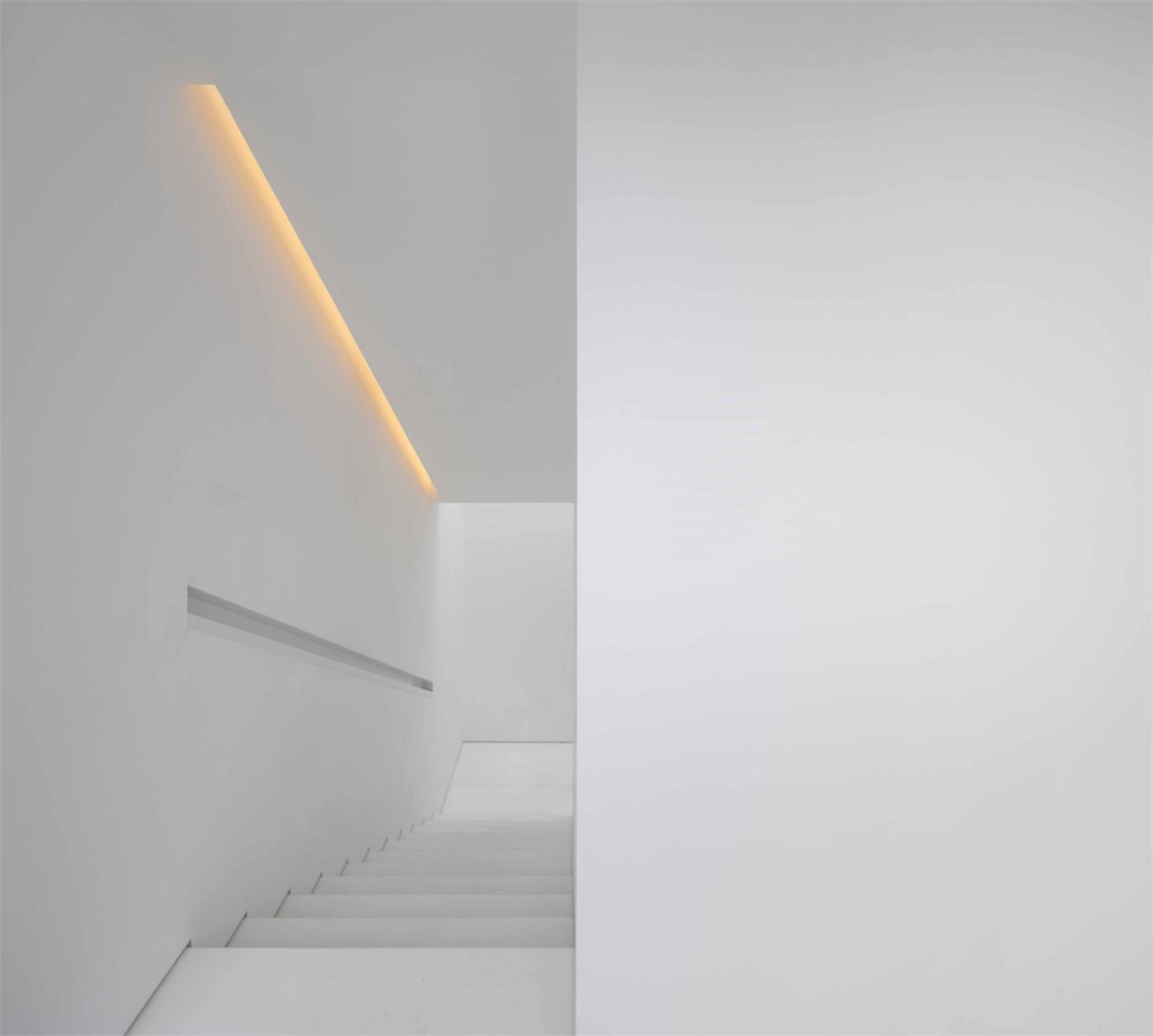

一系列活动面板和窗帘使得空间能够自由切换,对白色的运用也通过变化的色调和纹理而产生出丰富的层次,打造出氛围柔软的居住环境,增强私密空间的质量与舒适感。
Series of movable panels and curtains allow the spaces to be reconfigured freely, while the layering of varying shades and textures of whiteness gives the space an overall airiness and softness that is meant to enhance the quality and comfort of these intimate rooms.
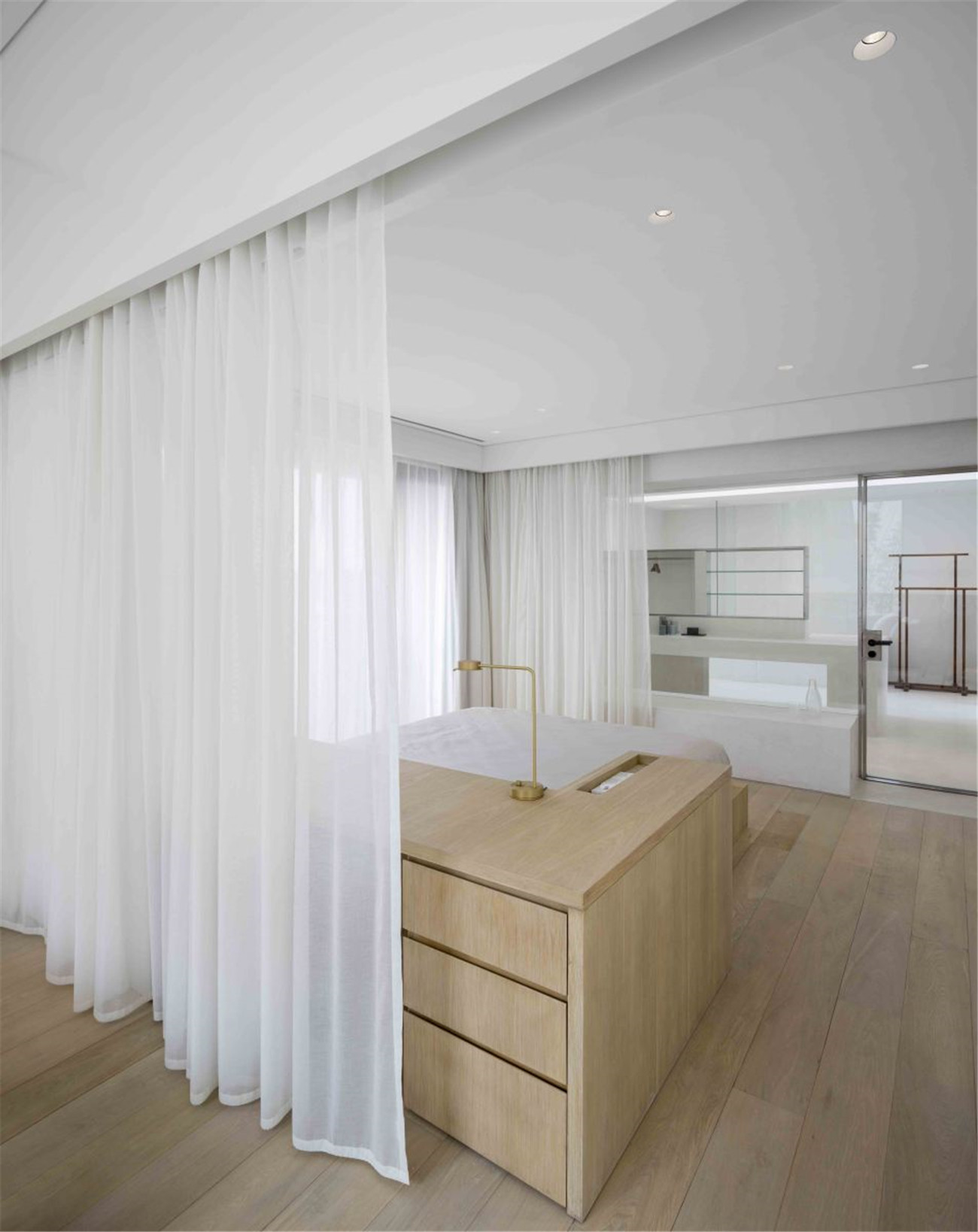
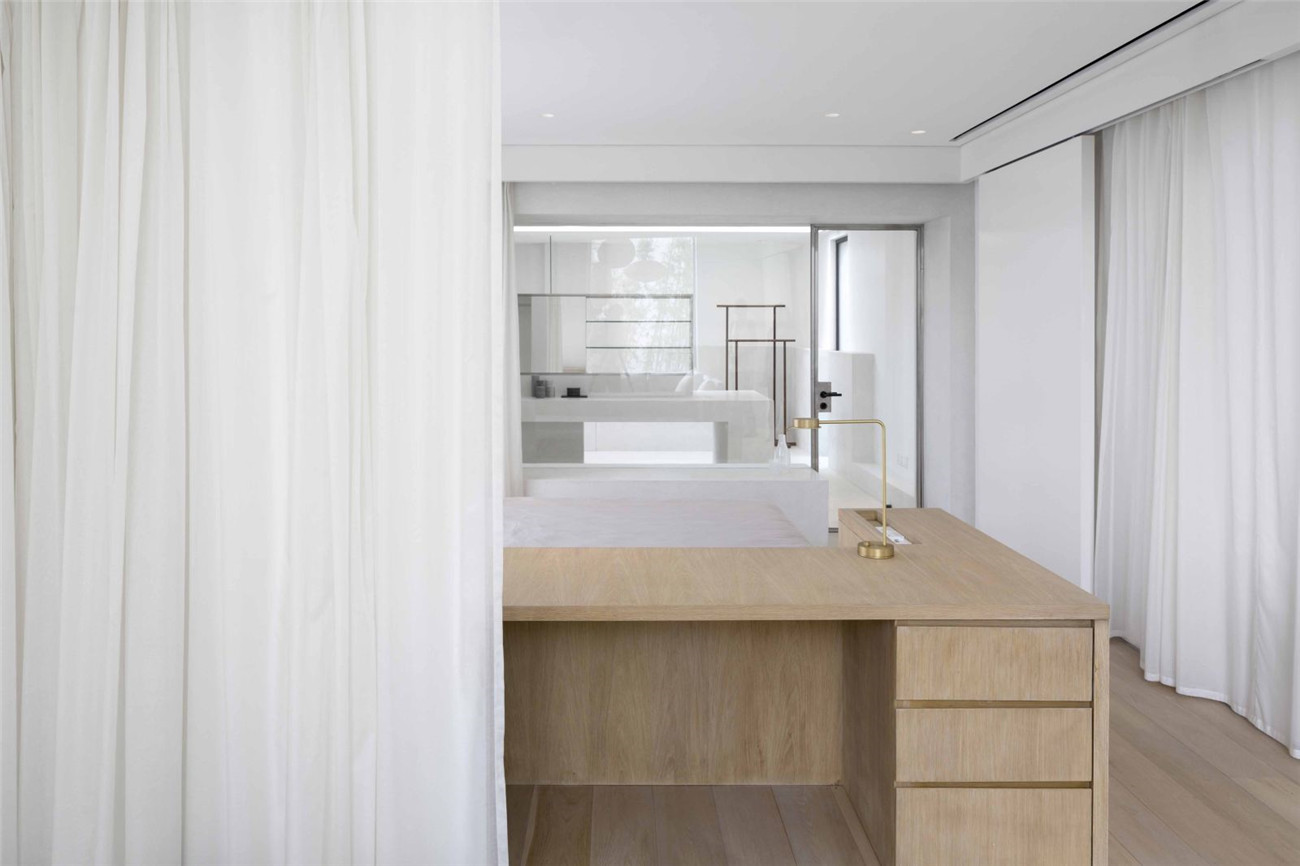
空间内陈设的大件家具以低调朴素的风格为主,而古董、精致的装饰品和特别的配件,也为“家”的空间增添了亲和力与活力。
The main furniture items in each space are quietly understated, while one-of-a-kind antiques, delicate embellishments, and various quirky accent pieces add to the vibrancy and lived-in quality of a true “home”.
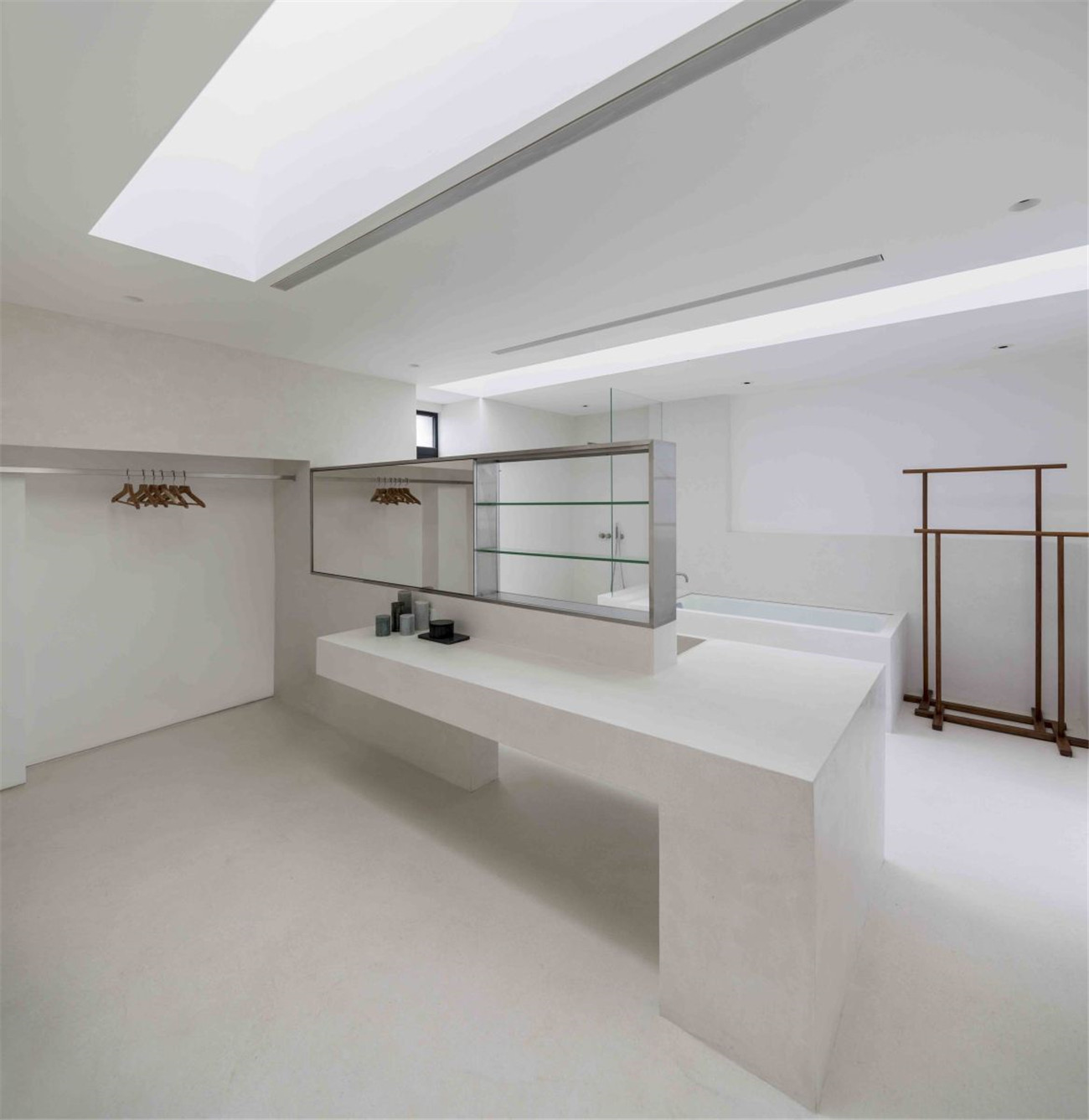
版权声明:本文由如恩设计授权有方发布,禁止以有方编辑后版本转载。
上一篇:占领与讲和:解读亚历杭德罗·阿拉维纳
下一篇:现代主义的“搁浅”——2018漂浮艺术节